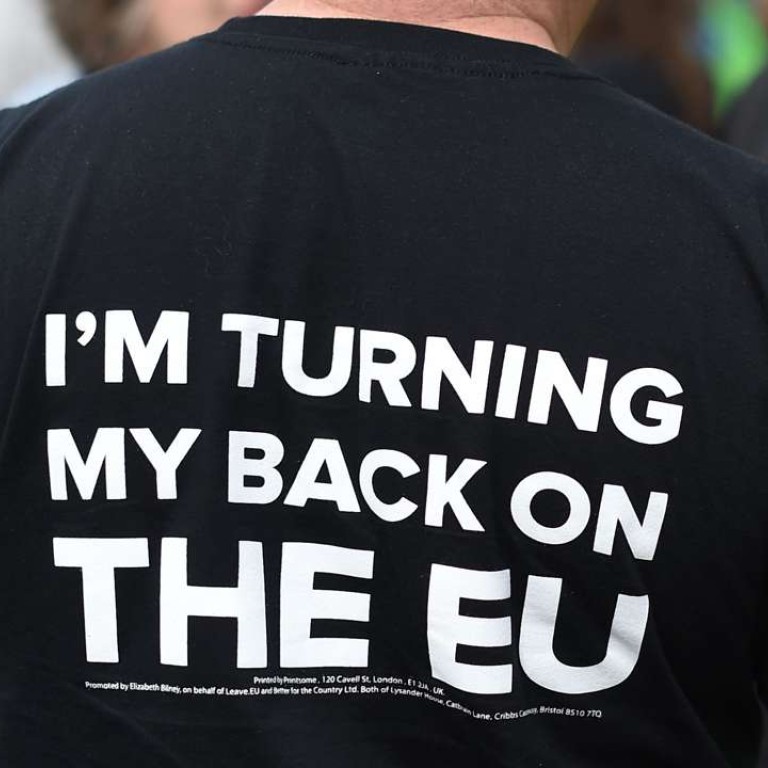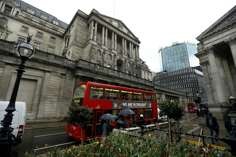
As Brexit looms, financial markets won’t be a place for the faint-hearted
“Brexit risk” such a dominant factor in markets that it even overshadowed the Fed’s rate meeting
Opinion polls should be treated with caution – particularly in the United Kingdom where pollsters failed to predict the outcome of the country’s last parliamentary election in May 2015.
Yet on Monday, a pair of polls published by ICM, a pollster, showing that the “Leave” campaign has extended its lead over the “Remain” camp ahead of a closely watched referendum on the UK’s membership of the European Union on June 23 were enough to spook financial markets.
In a “flight to safety”, investors began pouring money into “haven” assets such as government bonds, gold and the yen.
The British pound, the worst-performing major currency this year, has lost 3 per cent against the dollar since the Leave campaign opened up a lead over the Remain camp at the end of last month, while the yield on benchmark 10-year UK government bonds, or Gilts, has dropped nearly 35 basis points to a record low of just 1.1 per cent.
The FTSE 250 index of mid-sized UK companies, which are more exposed to Britain’s economy than their larger and more international peers, has lost 5.5 per cent since June 7.
UK assets are not the only securities affected by mounting concerns that there will be a British exit from the EU, or Brexit.
On Tuesday, the yield on 10-year German government bonds, or Bunds, dipped below zero for the first time while its Japanese equivalent, which turned negative in February, fell to a new low of minus 0.18 per cent. Global equity markets have also come under strain while the yield on the benchmark 10-year US Treasury bond has fallen to a mere 1.5 per cent. That was its lowest level since the end of 2012, just before the Federal Reserve spooked markets by announcing its decision to begin winding down its quantitative easing programme.
Indeed so focused have investors become on “Brexit risk” that the Fed’s interest rate-setting meeting on Wednesday was something of a sideshow. “It’s a testament to the degree of Brexit referendum fever, concern and uncertainty that the Fed’s once much-anticipated meeting has been largely held in abeyance as a market discussion point until the day of the meeting,” noted ADM Investor Services, a brokerage.
International policymakers are also increasingly concerned.
Janet Yellen, the Fed chair, singled out “Brexit risk” as one of the factors that contributed to the Fed’s decision to leave its main interest rate unchanged.
On Tuesday, Reuters reported that the European Central Bank has been working on a plan to open so-called “swap lines” with the Bank of England in order to provide unlimited funding in both euros and pounds to European banks in the event of a Brexit.
Yet how likely is a Brexit and what would be the consequences for global markets?
Interestingly, although investors have become much more concerned about the threat of a British withdrawal from the EU, traders are still betting that such an outcome will be averted.
According to Bloomberg, the level of so-called “one-year implied sterling volatility” – the price of insuring against swings in the pound over the next year – has changed little over the past several weeks. The UK’s five-year credit default swap spread – a gauge of the country’s perceived creditworthiness – has also remained fairly stable since rising sharply in February following the decision by former London mayor Boris Johnson to back the Leave campaign.
Other asset markets have also remained extremely resilient to “Brexit risk”.

Yet it is the eurozone which could be most at risk from a Brexit.
If the risk of Greece, a country which accounts for less than 2 per cent of Europe’s GDP, leaving the eurozone almost caused the break-up of the bloc, then surely the withdrawal of Britain, which accounts for one-sixth of EU GDP and 25 per cent of all EU financial services income, would be an even bigger blow to the cause of European integration.
Still, traders may not be as complacent as it appears.
Next week’s UK referendum is not legally binding. In the event that the Leave camp wins, the government would have to decide whether to invoke Article 50 of the EU treaty – the so-called “red button” – which triggers the formal process of withdrawal from the EU.
If the turnout is low or if the Leave camp wins by just a wafer-thin margin, it is possible that there will be no Brexit.
Either way, next week’s trading sessions will not be for the faint-hearted.
Nicholas Spiro is a partner with Lauressa Advisory

